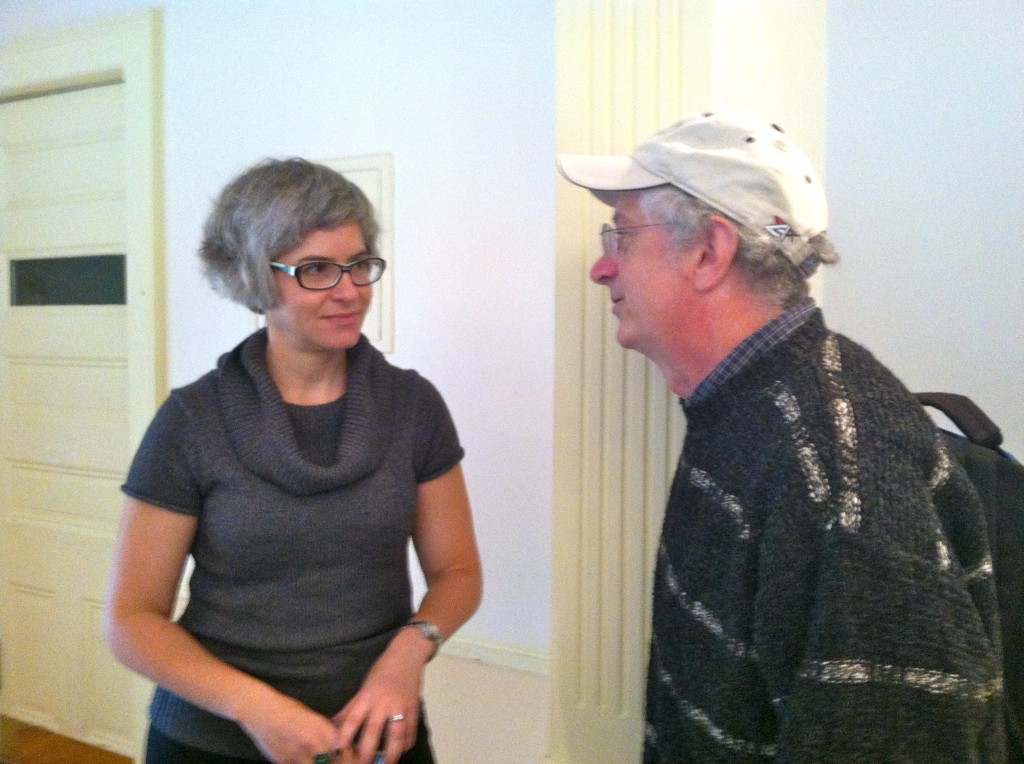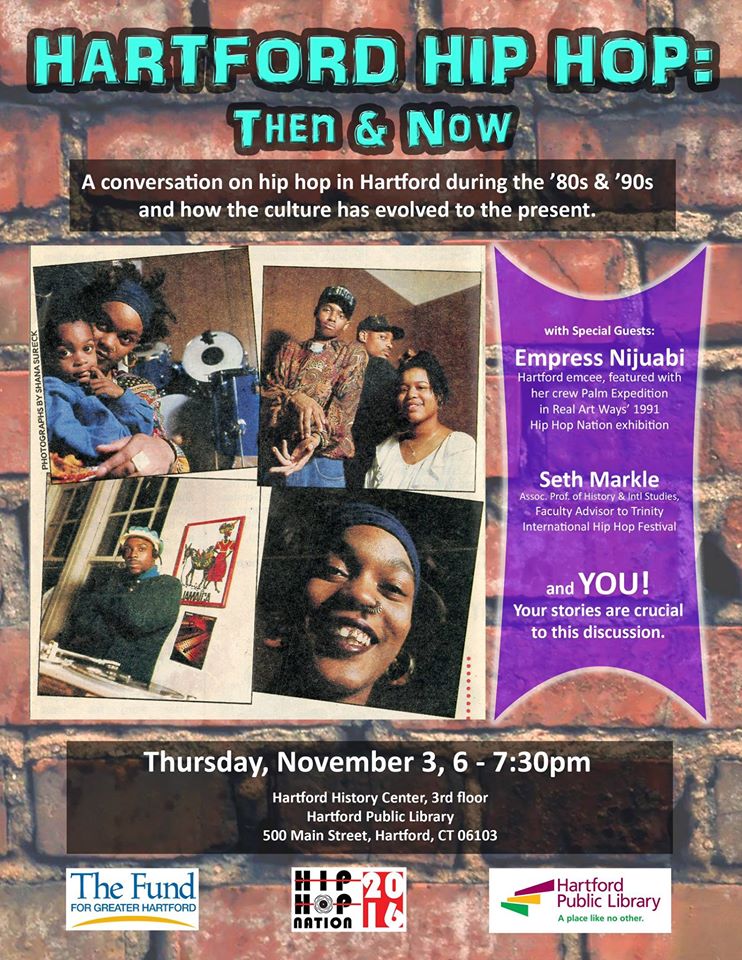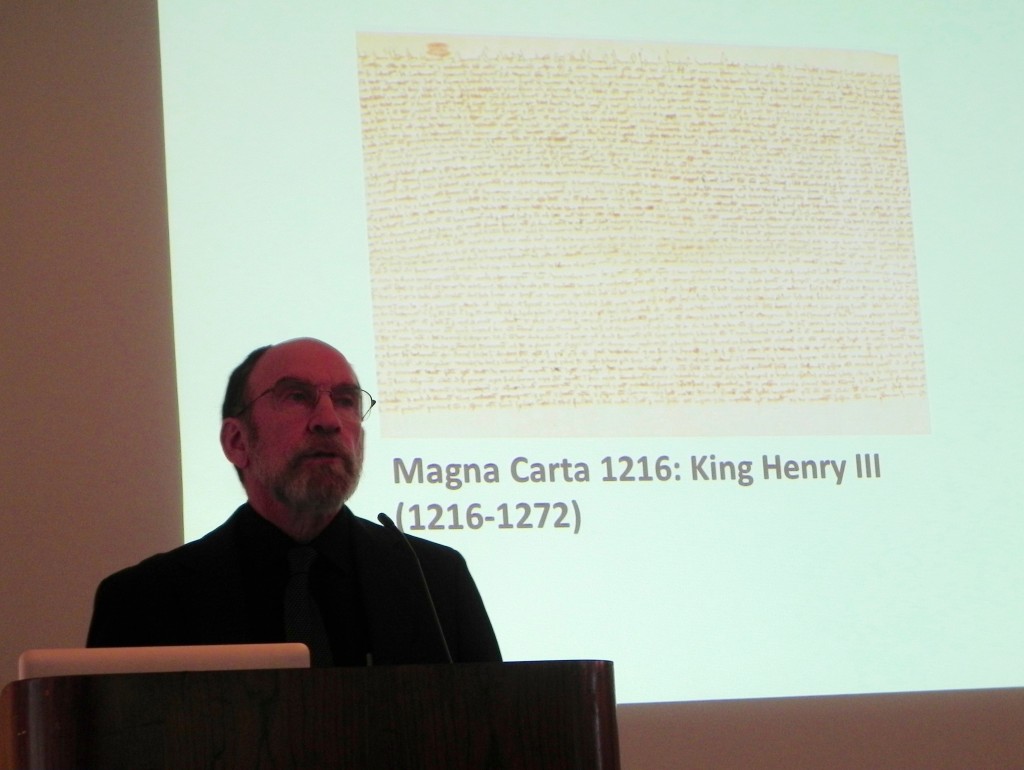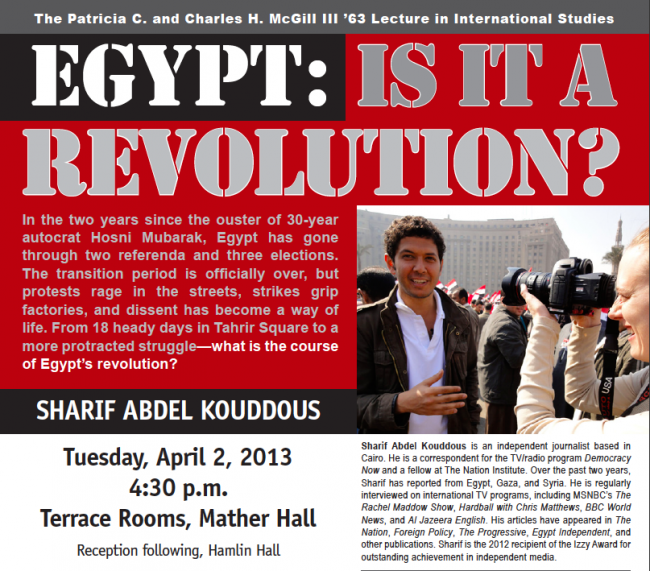“Hartford Hip Hop: Then and Now”
A Conversation on hip hop in Hartford during the 1980s-1990s and how the culture has evolved to the present featuring Empress Nijuabi, a Hartford based emcee who was a member of the pioneering hip hop group Palm Expedition and Seth Markle, Associate Professor and Faculty Advisor to the Trinity International Hip Hop Festival.
When: Thursday, November 3rd, 6-7:30pm
Where: Hartford History Center, Hartford Public Library (downtown)
Free and open to the public.
The Annual Philip C.F. Bankwitz Lecture: Money, History and the French Revolution
On Thursday, November 3, 4:30pm (Reese Room, Smith House): The History Department will be sponsoring its annual Philip C.F. Bankwitz Lecture titled, “Money, History and the French Revolution” featuring Rebecca Spang is Professor of History and Director of the Center for EighteenthCentury Studies at Indiana University. Her first book, The Invention of the Restaurant: Paris and Modern Gastronomic Culture, has been translated into Japanese, Portuguese, Turkish, and Modern Greek. It was the recipient of two major prizes, the Gottschalk Prize for the best book in eighteenth-century studies, awarded by the American Society for Eighteenth-Century Studies, and theThomas J. Wilson Memorial Prize for best first book, awarded by the Harvard University Press.
Her most recent research is on the subject of money. Stuff and Money in the Time of the French Revolution, published by Harvard University Press in 2015, uses one of the most infamous examples of monetary innovation — the assignats — to write a new history of money and a new history of the French Revolution. It shows that revolutionary radicalization was driven by the ever-widening gap between political ideals and the experience of daily life and restores economics, in the broadest sense, to its rightful place at the heart of the Revolution (and hence of modern politics).
Trinity International Hip-Hop Festival Program, April 7–10, 2016
From its creation in academic year 2005–2005 by a group of Trinity College students as a vehicle to “combat the disunity, segregation, and violence of Hartford, CT and Trinity College,” the Trinity International Hip Hop Festival always has close ties with several History majors and faculty.
One its co-founders, for example, was Jason P. Azevedo ’08, currently a career U.S. Department of State Foreign Service Officer specialized on Africa and Brazil.
Since 2009, History and International Studies Assistant Professor Seth Markle has served as the main academic advisor to Trinity Chapter of Temple of Hip Hop and annual Trinity International Hip Hop Festival.
As the coordinating group has put it, from the beginning the festival’s main strategies and goals have been using a “the historically education-oriented and politically revolutionary medium — Hip Hop – and focusing on its global potency and proliferation, the Trinity International Hip Hop Festival works to unify Trinity College, the city of Hartford, and the Globe.”
This year’s program, includes lectures and panel discussions with a variety of scholars, artists, and community activists; film screenings, graffiti and photo exhibits, workshops, and performances, including Dance Event / B-Boy Battle on Friday, April 8th (7pm–2am), the Saturday April 9th (8pm-2am) Hip Hop Concert, featuring Rakim and several other MCs and DJs. The festival ends on Sunday, April 10th with a DJ showcase and the Iron Poet Slam Competition.
You can find the Festival’s FULL PROGRAM here: 2016 Program for the Trinity International Hip Hop Festival – We hope to see you there!
Mead Lecture & Student Reactions
On Tuesday, October 20th, Dr. Stephen D. White, Candler Professor Emeritus of Medieval History at Emory University and Visiting Professor at Harvard University delivered the History Department’s annual George J. Mead (Class of 1937) Lecture: “Magna Carta: How a Total Failure Became “the Greatest Constitutional Document of All Times.”
The Mead Lecture in History, established by a bequest in 1952, is Trinity’s most prestigious endowed annual lecture. Previous lecturers have included James McPherson, Philip Curtin, Alan Samuel, and E. P. Thompson. The fund was established in honor of George Jackson Mead of Bloomfield, Connecticut. He graduated from Choate preparatory school and the Massachusetts Institute of Technology.
Mr. Mead was a founding partner in the Pratt & Whitney Aircraft Company and the designer of its Wasp engine, whose widespread use and reliability transformed military and commercial aviation in the U.S. He later served as an advisor to President Franklin D. Roosevelt, guiding wartime aircraft production throughout the nation, and was awarded the President’s Medal of Merit in 1948. His intent was that the Mead Fund support lectures, prizes, and other programs to stimulate the study of government, economics, and history, in order to better prepare students for government service. Mr. Mead received an honorary doctorate from Trinity College in 1937.
Lecture: Education and Civil Rights in the 21st Century
On Tuesday, Sept. 23rd, Trinity College’s Office of Multicultural Affairs and La Voz Latina hosted Pedro Noguera, the Peter L. Agnew Professor of Education at New York University, who in honor of Hispanic Heritage Month spoke on Education and Civil Rights in the 21st Century. This event, which is co-sponsored by the History, Educational Studies, Political Science, Sociology, American Studies and International Studies departments.
Here are some reflections from first year students who attended this eye-opening talk:
“Professor Noguera highlighted and brought to my attention many key points and issues pertaining to our education system that I myself have struggled through in my experience as a student in the American system. There key generalized revisions in the professor suggested that our leaders and lawmakers make, but also specific advice for teachers and principals at the local level. Perhaps the most important point in the entire conversation, however, was that education for everyone benefits us all in greater ways than education solely for a privileged few” — Theo Pesiridis, Class of 2018
“Before hearing Professor Noguera talk, I had imagined him speaking in regards to the “wrong” about education and the ruthless results in education. In a way, I imagined him talking about that failures in the education system, but in actuality, Noguera mentioned successes throughout the country…In the end, he challenged the audience into going out into the community and being that small token of difference. He stated in his closing arguments: “It’s all about will”. This shows us that if we want the change in the education system, we must be willing to make the transformation.” — Giselle Galan, Class 2018
“Racial segregation does exist in the United States of America and can’t be ignored.” — Abdi Noor, Class of 2018
“While the civil rights movement is no longer the proprietor of headline news come the 21st century, education has taken over as the civil rights issue of our time…Professor Noguera, who has been studying how to improve schools for many years, pointed out how, for many of the school systems that were failing, there were schools populated by mostly white students, which received far more funding. This idea of providing schools that are the most well off with further funds is not only backwards, but is the driving the problem farther from its solution.” — Jonah Meltzer, Class 2018
Lecture: Looking for War in the Landscape

On October 23, Trinity welcomed Megan Kate Nelson, a cultural and environmental historian with two published books who currently teaches at Brown University. She led a discussion entitled “Looking for War in the Landscape/Looking for Landscapes in the War” in which she analyzed the Civil War’s impact on the land of the United States and vice versa.
Nelson conducted extensive research in Virginia guided by a fascinating question: how can we access the experiences of the Civil War? The answer, she concluded, lies right beneath our feet: the land. In her research, Nelson studied “earthworks” and other physical remains of war. Some of these lay unnoticed on the outskirts of suburbs and others were formally preserved, and still others are missing. She found that the experience evoked by these earthworks was a reflection of their location and the landscape itself.
Nelson’s current research involves a narrative history of the Civil War in the Southwest, where the diverse eco-regions of New Mexico were the site of biological warfare. Whether concerning natural or built landscapes, Nelson’s insight into the diverse connections between land and warfare is compelling for historians and non-historians alike.
The McGill Lecture: Egypt: is it A Revolution?
HARTFORD, CT, April 4, 2013 – “The 18 heady days of rebellion in Cairo’s Tahrir Square in January 2011 were filled with hope, promise and the expectation of a better life. But the events of the past two years have not unfolded as envisioned by the tens of thousands of Egyptians who took part in the Tahrir Square demonstrations that led to the ouster of longtime President Hosni Mubarak. Sharif Abdel Kouddous delivers the annual Patricia C. and Charles H. McGill III ’63 Lecture in International Studies. Those were among the major conclusions drawn by Sharif Abdel Kouddous, an independent Cairo-based journalist, who on Tuesday delivered the annual Patricia C. and Charles H. McGill III ’63 Lecture in International Studies in Mather Hall. Kouddous’ lecture was entitled, “Egypt: Is it a Revolution?” The overthrow of Mubarak, an autocrat who had been in power for three decades, was among the first of several uprisings in the Middle East that came to be known as the Arab Spring, and were thought to be the beginnings of democracy taking root in countries where dictatorships had long flourished. Indeed, in the immediate aftermath of Mubarak’s ouster, “foreigners would smile and congratulate me,” said Kouddous. “Today I get a much different reaction – a look of pity. People ask me, ‘What happened?’ Is the revolution over?’ What are the prospects fos for change?’”








